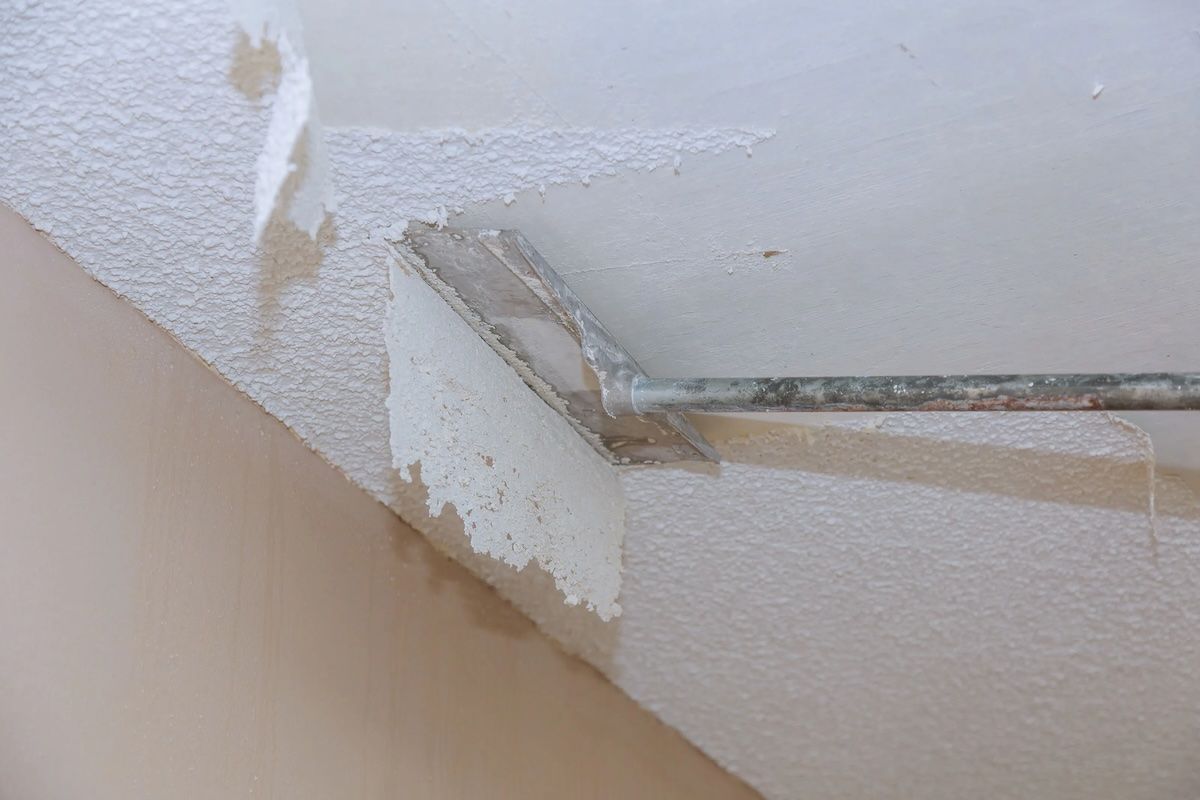Buyers & Sellers: How to Counter-Offer After a Home Inspection

Whether you’re the buyer or seller, the results of a home inspection can bring the transaction to a screeching halt. But, by understanding the process and knowing what to expect, both parties can assist in making the counter-offer negotiation process go much smoother.
In this article, we explore top counter-offer negotiation tactics for both buyers and sellers. This guide can give both sides insights into what they should do to make a counter-offer that will be accepted so you can move on with the sale.
What Happens During a Home Inspection?
First, it’s important to know what happens during a home inspection. In short, the process involves a professional inspector going through the entire house to check for any potential problems. The inspector will look at the property’s structure, foundation, HVAC system, plumbing, electrical work, and more.
The inspector will then provide a report that outlines any issues they found with the property. These issues can range from small problems that are easy to fix, to major structural damage that will be very costly to repair.
Common Minor Home Inspection Issues
Minor issues are the type of problems that are easily fixed and not too costly. These might include things like:
- Leaky faucets
- Damaged flooring
- Small holes in the wall
- Shabby (but not failing) roofing or gutters
- Minor pest infestations
- Peeling paint
- General poor upkeep
Common Major Home Inspection Issues
On the other hand, major home inspection problems are much more serious. These can include:
- Structural damage to the foundation or framing of the house
- Broken or damaged HVAC systems
- Significant pest infestations
- Electrical work that is not up to code
- Substantial plumbing problems
- Asbestos
- Mold
Both buyers and sellers should be aware of the types of issues that can come up during a home inspection so they know what to expect. With that said, let’s take a look at some counter-offer negotiation tactics for buyers and sellers.
>>DISCOVER: When Do You Get Paid After Selling Your House?
Counter-Offer Negotiation Tactics for Buyers
First, take some time and really look at the big picture. Are the repairs just from wear and tear or significant neglect? Are they so concerning that you even need to negotiate? If the answer is no, then it might be best to just handle the repairs on your own, after the sale.
However, if the repairs are significant enough to make you think twice about buying the property, then you’ll need to negotiate with the seller. Here are some tips for the buyer counter-offer process.
1. Ask the Seller to Make Repairs Themselves
One option is to ask the seller to make repairs themselves before the sale is finalized. This can be a good option if the issues are minor and the seller is unwilling to lower the price of the home.
Keep in mind, however, that most sellers will want proof that the repairs have been made before they finalize the sale. This means you’ll either need to hire your own inspector to verify that the repairs have been made or trust that the seller is being honest.
2. Request a Price Reduction
If the home inspection uncovered major problems, you may want to consider asking for a price reduction. This is because the cost of repairing major issues can be very expensive, and it’s not fair to ask the seller to pay for them.
When making a counter-offer, it’s important to be reasonable. Start by looking up the cost of repairing the issues and then subtract that amount from the purchase price of the home. This will give you a starting point for your counter-offer.
3. Ask the Seller to Pay Part of the Closing Costs
Another option is to ask the seller to pay part of your closing costs. This can be a good tactic if the inspection uncovered minor problems and you don’t want to ask the seller to make repairs or you’re pressed for time.
When making this request, it’s important to be reasonable and flexible. If the negotiation process is going to stay at a standstill, you may want to consider splitting the difference with the seller.
4. Walk Away From the Sale
In some cases, the problems uncovered during the home inspection are so major that it’s not worth it to continue with the sale. If this is the case, you may want to consider walking away from the deal. Of course, this is the last resort option and should only be considered if the repairs are going to be too expensive or time-consuming.
The Psychology of Counter-Offering the Seller
First and foremost, as the buyer, you should understand the position the seller is in. Even if there is an emotional attachment to the home, they are in the process of leaving for good. And, sometimes, memories are not enough to inspire the seller to ACTION.
It is important to remember that the seller has likely put their home on the market for a good reason. In most cases, this means they want or need to sell quickly. This could be because they are relocating for work, downsizing, or going through a divorce.
With that said, do your best to understand their situation and get the negotiation process off on a good foot. You can do this by knowing how to handle a home seller’s counter-offer:
- Making a reasonable first offer
- Being respectful
- Asking questions
- Listening to their answers
While it is a significant financial transaction with a lot of money on the line, at the end of the day, the seller is a person just like you. And, as we all know, people are more likely to work with those they like and trust.
Counter-Offer Negotiation Tactics for Sellers
Sellers, let’s be real. Now that you see above how a buyer can maneuver the counter-offer negotiation process, you know you need to be just as, if not more, prepared. Buyers, you’re reading this section and we’re going to tell you how to best arm yourselves for the negotiation process.
As the seller, your goal is to come to an agreement that is beneficial for both parties involved. You want to sell your home for the highest price possible while also making the sale as quickly and easily as possible. Here are some counter-offer negotiation tactics to help you do just that:
1. First, Know Your Why
Why are you selling? Are you going through a divorce, relocating for work, or downsizing for retirement? Knowing your ‘why’ will help you better understand what you’re looking for in a sale. This will come in handy when the negotiation process begins and you start receiving counter-offers from buyers.
2. Don’t Be Offended By Lowball Offers
It’s important to remember that a lowball offer is not personal. The buyer is simply trying to get the best deal possible. And, in some cases, it may be their first offer in order to leave room for negotiation.
If you receive a lowball offer, don’t be offended. Instead, use it as an opportunity to start the negotiation process.
3. Determine Your Bottom Line
What is your bottom line? In other words, what is the least amount of money you’re willing to accept for your home? Once you know this number, you can start to counter-offer the buyer with a number that is closer to your bottom line.
It’s important to keep in mind, however, that the buyer may not be willing to meet you at your bottom line. In this case, you’ll need to decide if you’re willing to negotiate or if you’d rather walk away from the deal.
4. Don’t Allow Emotions to Cloud Your Judgment
In order to keep a calm, level-headed negotiation strategy moving along, you will need to emotionally detach yourself from the home. This is easier said than done, but it’s important to remember that a home is simply a piece of property.
If you allow your emotions to get in the way, you may find yourself making decisions that are not in your best interest. In other words, you may end up accepting a low offer just to get rid of the property.
5. Offer a Home Warranty Plan
If negotiations seem to be getting nowhere, offer to purchase a home warranty plan for the buyer. For only a few hundred dollars, you can purchase a plan as an incentive to continue the negotiation process.
6. Use a Realtor
A real estate agent or Realtor can be a great asset during the negotiation process. Not only do they have experience negotiating on behalf of their clients, but they can also help you to determine a fair counter-offer.
If you’re not sure how to proceed with a buyer’s counter-offer, consult with your real estate agent. They will be able to provide you with guidance and advice that is in your best interest.
Final Tips for Both Sides
There are a few important things to keep in mind for both buyers and sellers when it comes to negotiating counter-offers:
1. Keep a Poker Face
As the inspector and agents point out issues with the property, don’t show a reaction. An emotional reaction from either side can give away too much information and put you at a disadvantage. Check the emotions at the door, otherwise, you may end up making a mistake.
2. Get Every Issue in Writing
Make sure that you get a copy of the home inspection report so you can review it in detail. This will give you a better idea of what needs to be addressed and help you come up with a counter-offer that is fair.
3. Take Another Look at the Local Real Estate Market
Take a look at comparable properties, local market trends, and recent sales data. This will give you a better idea of what the property is actually worth and help you come up with a counter-offer that is in line with the market.
4. Get Professional Opinions
If there are any issues that you don’t understand, or that the other side is trying to downplay, be sure to get a second opinion from a professional. This could be anything from hiring your own inspector to look at the property again or getting an estimate from a contractor for repairs.
5. Know Your Bottom Line
Before you start negotiating, it’s important to know how much you’re willing to budge. This will help you make counter-offers that are realistic and that won’t leave you feeling taken advantage of in the end.
6. Have a Contingency Plan
It’s always a good idea to have a contingency plan in place in case the negotiations fall through. This could involve finding another property to buy or making arrangements to rent if you’re selling your home.
7. Set Deadlines
Finally, to ensure that both sides reply to counter-offers in a timely manner, it’s a good idea to set deadlines. This will help to keep the process moving along and prevent any delays. Be sure to set realistic deadlines that reflect the gravity of the situation accurately.
Better Yet, Let a Realtor Negotiate For You
While we wanted to provide a guide that can give both buyers and sellers some insight on how to counter-offer after a home inspection, the fact of the matter is that negotiating is tough work. Effectively using counter-offer negotiation tactics takes years of practice.
The best way to ensure that you’re getting the best possible deal on a property is to let a professional real estate agent handle the negotiation process for you. At FastExpert, we can connect you with top-rated real estate agents in your area who will negotiate on your behalf and help you get the best possible deal.
Talk to an Agent Today! Take the next step and enter your zip code below to find the perfect real estate agent to help you buy or sell a home.





